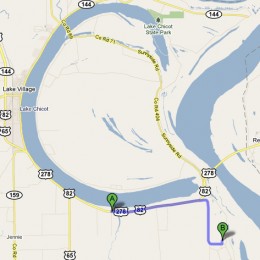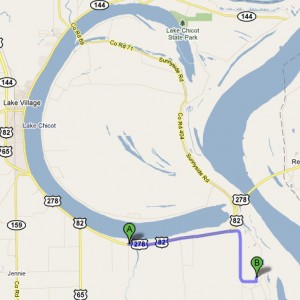Southeast Arkansas’s African-American Legislators, 1868-1893
Reconstruction gave black males (freed former slaves) the right to vote for the first time. This had enormous consequences for civil society. During Reconstruction and in the following years, eighty-six black men were elected to represent Arkansas in the General Assembly. Of the eighty-six, fourteen were elected from southeast Arkansas. Active participants in the legislative process, black legislators engaged in debate, introduced bills, and voted. They tended to support civil rights, education, public improvements, and immigration into the state. Black legislators from the southeast included the wealthy son of Chicot County’s largest planter; a noted abolitionist from Illinois; a former slave who became a college president and physician; educators; ministers; as well as men who eked out their living as farm laborers into the early 20th century. Laws designed to disenfranchise black voters (poll taxes, complicated election procedures and ballots), ultimately ended the election of African Americans in the late 19th century.
Senate
- James W. Mason, 1868, 1871 (Ashley, Chicot, Drew, Desha)
- Samuel H. Holland, 1873, 1874 (Ashley, Chicot, Drew, Desha)
- W. H. Logan, 1887, 1889 (Chicot, Desha)
- George W. Bell, 1891, 1893 (Chicot, Desha)
House
- Edward A. Fulton, 1871 (Ashley, Chicot, Drew, Desha)
- James A. Robinson, 1871, 1874-75 (Ashley, Chicot, Drew, Desha)
- John W. Webb, 1871 (Ashley, Chicot, Drew, Desha)
- John C. Rollins, 1873 (Ashley, Chicot, Drew, Desha)
- Isaac G. Bailey, 1885 (Desha) [born in Chicot]
- Green Hill Jones, 1885, 1889 (Chicot)
- Hugh L. Newsome, 1887 (Chicot)
- Henry A. Johnson, 1891 (Chicot)
- R. C. Weddington, 1891 (Desha)
- Nathan E. Edwards, 1893 (Chicot)
Adapted from Wintory, Blake J. “African American Legislators in the Arkansas General Assembly, 1868-1893.” Arkansas Historical Quarterly 65 (Winter 2006): 385-434.
Updated April 4, 2018




